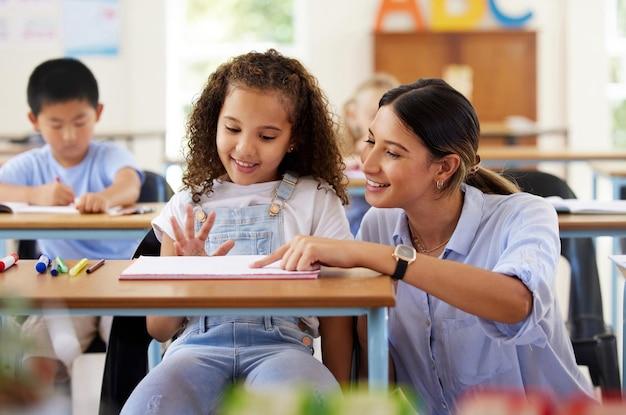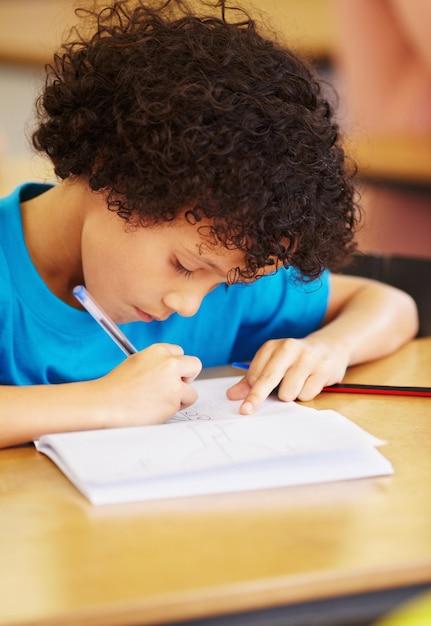Welcome to our blog post on assessing learning and development in early childhood classrooms. As parents and educators, we all want to ensure that our little ones are thriving and reaching their full potential. But how exactly do we measure their progress in a classroom setting? What aspects of their development are assessed, and how do we go about it?
In this blog post, we will explore the various dimensions of assessment in early childhood classrooms. We’ll delve into the concept of child development and pedagogy, understanding how it plays a crucial role in shaping our assessment practices. We’ll also discuss the equipment and activities that promote cognitive development, providing a stimulating environment for young learners. And finally, we’ll answer the question, “What does the class assess in an early childhood classroom?”
So, if you’re ready to gain a deeper understanding of how assessments are conducted in early childhood classrooms and how they contribute to your child’s learning and development, let’s dive right in!

What Does the Class Assess in an Early Childhood Classroom?
Assessing young children in an early childhood classroom might sound like a daunting task, but fear not! Educators have a few tricks up their sleeves to ensure they capture a true picture of each child’s development and progress. Here’s a breakdown of what the class assesses in an early childhood classroom, because let’s face it, these little munchkins are more than just tiny tornadoes of energy.
Assessing Social and Emotional Development
First up, we have the social and emotional development of these tiny humans. And oh boy, it’s a rollercoaster! Teachers are like undercover agents, observing everything from friendships forming over shared snacks to epic meltdowns over sharing toys. They assess things like self-regulation, empathy, and cooperation. Who knew playing “house” could be such a goldmine of behavioral insights?
Unleashing the Power of Language and Communication
We all know kids can talk up a storm, but did you know that their language skills are closely monitored? Teachers work their magic to assess their vocabulary, grammar, and communication skills. Picture this: a classroom filled with kiddos trying to express their wildest dreams and grandest stories. It’s like a mini Socrates convention. So, if you hear the word “stupendous” or “magnificent” from a five-year-old, don’t be surprised!
Evaluating Cognitive Abilities
Now, let’s dive into the depths of their young minds. Assessing cognitive abilities is like being a detective in a cozy mystery novel. Teachers use various tools to evaluate their problem-solving skills, memory, attention span, and ability to grasp new concepts. It’s like watching little light bulbs flicker on as they conquer puzzles, count marbles, or become self-proclaimed tiny scientists with their endless “why” questions.
Tapping into Physical Development
We can’t forget about the incredible physical feats these mini Olympians conquer daily. From hopping on one foot to catching a ball, their gross and fine motor skills are put to the test. Teachers discreetly assess their dexterity, coordination, and overall physical development. It’s like watching a ballet of sneezes, jumps, and finger-painting masterpieces. Who needs the Olympics when you have an early childhood classroom?
Keeping an Eye on Creativity and Imagination
Last but certainly not least, teachers have their eagle eyes on their tiny artists and storytellers. Creative expression and imagination are assessed as they engage in activities like drawing, role-playing, and building with blocks. It’s like peeking into a parallel universe where dinosaurs ride unicorns and monkeys fly spaceships. Teachers must channel their inner Picasso and Shakespeare to truly appreciate the wonders these young minds create.
So, the next time you step into an early childhood classroom, remember that teachers are more than just wranglers of tiny humans. They are stealthy assessors, decoding the mysteries of childhood development. It’s a world filled with laughter, curiosity, and growth, all disguised as finger paints and crayons. Now, isn’t that something to marvel at?

FAQ: What does the class assess in an early childhood classroom?
In an early childhood classroom, assessment plays a crucial role in understanding and supporting a child’s development. Here are some frequently asked questions about what the class assesses in an early childhood setting:
What is child development and pedagogy
Child development and pedagogy are two essential components of early childhood education. Child development refers to the physical, cognitive, social, and emotional changes that occur in children as they grow. Pedagogy, on the other hand, focuses on the methods and strategies used by teachers to facilitate children’s learning and development.
What equipment and activities promote cognitive development
There are various equipment and activities that can stimulate cognitive development in early childhood. Some popular options include:
Sensory Play Stations:
Sensory play stations, such as sand tables, water tables, and sensory bins, allow children to explore different materials, textures, and sensory experiences. These activities promote critical thinking, problem-solving, and language development.
Building Blocks and Puzzles:
Building blocks and puzzles help children improve their spatial awareness, hand-eye coordination, and problem-solving skills. They also encourage creativity and imagination.
Interactive Technology:
Interactive technology, such as educational apps and touchscreen devices, can engage children in interactive learning experiences. It enhances their digital literacy skills while promoting cognitive development.
What does the class assess in an early childhood classroom
In an early childhood classroom, teachers assess various aspects of a child’s development to ensure they are meeting appropriate milestones. Here are some key areas that the class evaluates:
Cognitive Skills:
Teachers assess children’s cognitive skills, such as language development, problem-solving abilities, number recognition, and critical thinking skills. This helps identify areas of strength and areas that may need additional support.
Social Skills:
Social skills, including sharing, taking turns, empathy, and communication, are evaluated in an early childhood classroom. Teachers observe how children interact with their peers and adults to promote positive social development.
Physical Development:
Teachers assess children’s physical development, including gross and fine motor skills. They observe their coordination, balance, and ability to manipulate objects. This evaluation helps identify any motor skill delays or challenges.
Emotional Development:
Emotional development is another crucial aspect assessed in early childhood classrooms. Teachers observe how children express and regulate their emotions, their ability to form secure attachments, and their overall emotional well-being.
Which term refers to what a teacher says or does that engages children and contributes to their learning and development
The term that refers to what a teacher says or does to engage children and contribute to their learning and development is “instructional strategy.” Instructional strategies include various techniques used by teachers to actively engage children in the learning process. These strategies can involve storytelling, hands-on activities, group discussions, and visual aids to make learning enjoyable and effective.
Remember, in an early childhood classroom, assessment is not just about testing or measuring academic progress. It’s about understanding each child’s unique strengths and challenges and providing tailored support to help them reach their full potential. By considering the various aspects of child development and employing effective instructional strategies, teachers can create a nurturing and stimulating environment that enhances children’s overall growth and development.
Now that you’re familiar with what the class assesses, let’s explore how teachers support early childhood development in action-packed and joyful ways in our next section. Stay tuned!
